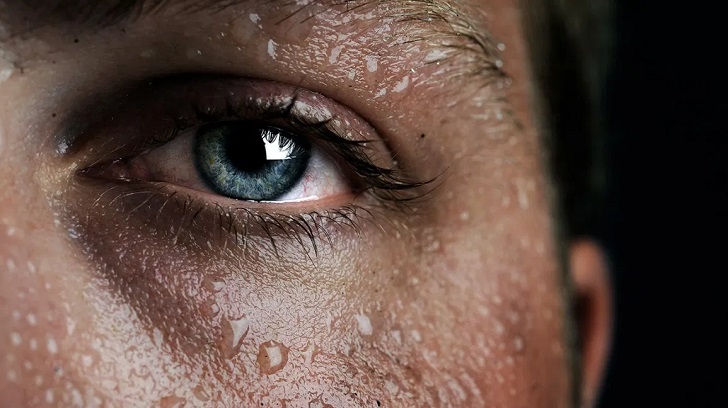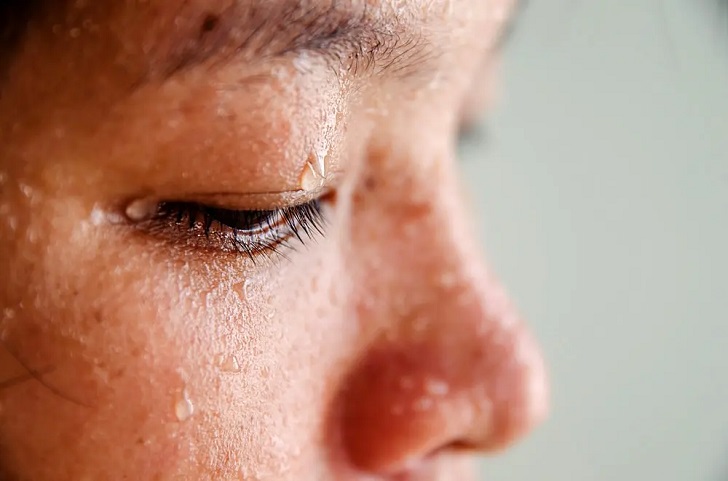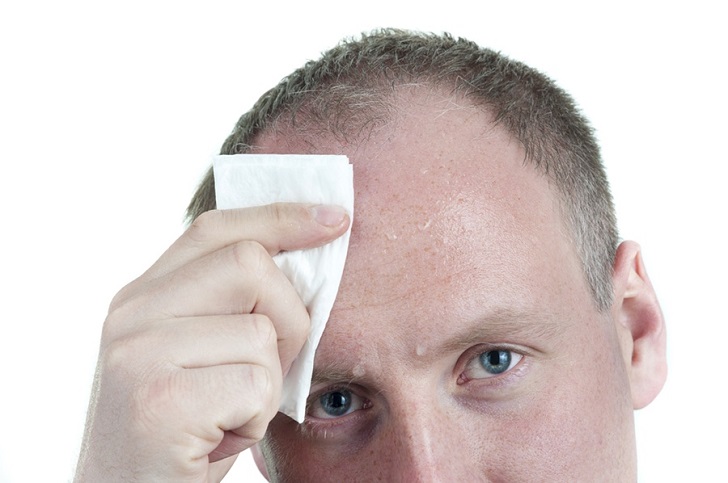Although sweating can be untidy, smelly, and even repulsive to some, it is the body's natural cooling process. When your body temperature rises due to exercise, heat, stress, or hormonal fluctuations, perspiration helps maintain a comfortable 98.6 degrees Fahrenheit. The majority of perspiration consists of water, with minor quantities of other substances. When perspiration exits the body through pores in the skin, it evaporates (transforming from a liquid to a vapor) and cools us down. Salt, ammonia, potassium, glucose, lactate, and urea, to name a few, are removed from the bloodstream by perspiration. Sweat is a terrific cooling mechanism, but it is also a great means for the body to eliminate these substances. Sweat includes biological indicators such as metabolites, electrolytes, and even heavy metals, which can provide a window into a person's health and potentially help in the diagnosis of certain disorders. Sweating is controlled by the sympathetic or autonomic nervous system. The neurotransmitter acetylcholine is used to send signals to the sweat glands. The perspiration is subsequently transported to the surface of the skin through ducts.

Healthline/ Pinterest | It’s time to break out the deodorant for a seriously sweaty season
Sweating further explained
In the human body, there are between 2 million and 4 million sweat glands spread all over the body. There are two types of sweat glands that are involved in perspiring. The first one is the Eccrine glands, which respond to heat; they release essentially odorless sweat directly onto your skin and in your armpits, the areas of the body with the highest concentration of sweat glands. In contrast, the Apocrine gland develops in your hair follicles and responds to heightened emotions and heat. They release fatty sweat that’s broken down by bacteria on the skin in a process that produces a stink.

Shutterstock/ Stock Image | There’s more to sweat than it happens
The amount of sweat you create depends on a number of variables, including:
- According to scientific research, persons with a greater body mass create more heat and, thus, more perspiration. A bigger body's increased surface area need increased sweat to cool it.
- Extremely fit individuals perspire more than their less-fit peers. But if fit individuals and less-fit individuals execute the same work, the less-fit individual will sweat more since they must invest more energy to complete the same task.

Eunika Sopotnicka/ Shutterstock | Composed of about 99 percent water, sweat evaporates on the skin’s surface
- Muscle mass generates more heat than fat mass. Therefore, even if two people have the same body weight, their sweat rates will vary dependent on their proportion of muscle mass.
- Several health issues and life stages might affect the amount of perspiration you produce. Even mental health disorders such as worry and sadness can influence the amount of perspiration. Specifically, hormone variations are frequently associated with a rise in internal body temperature.




